
Blog
CBD fot Neurological Conditions
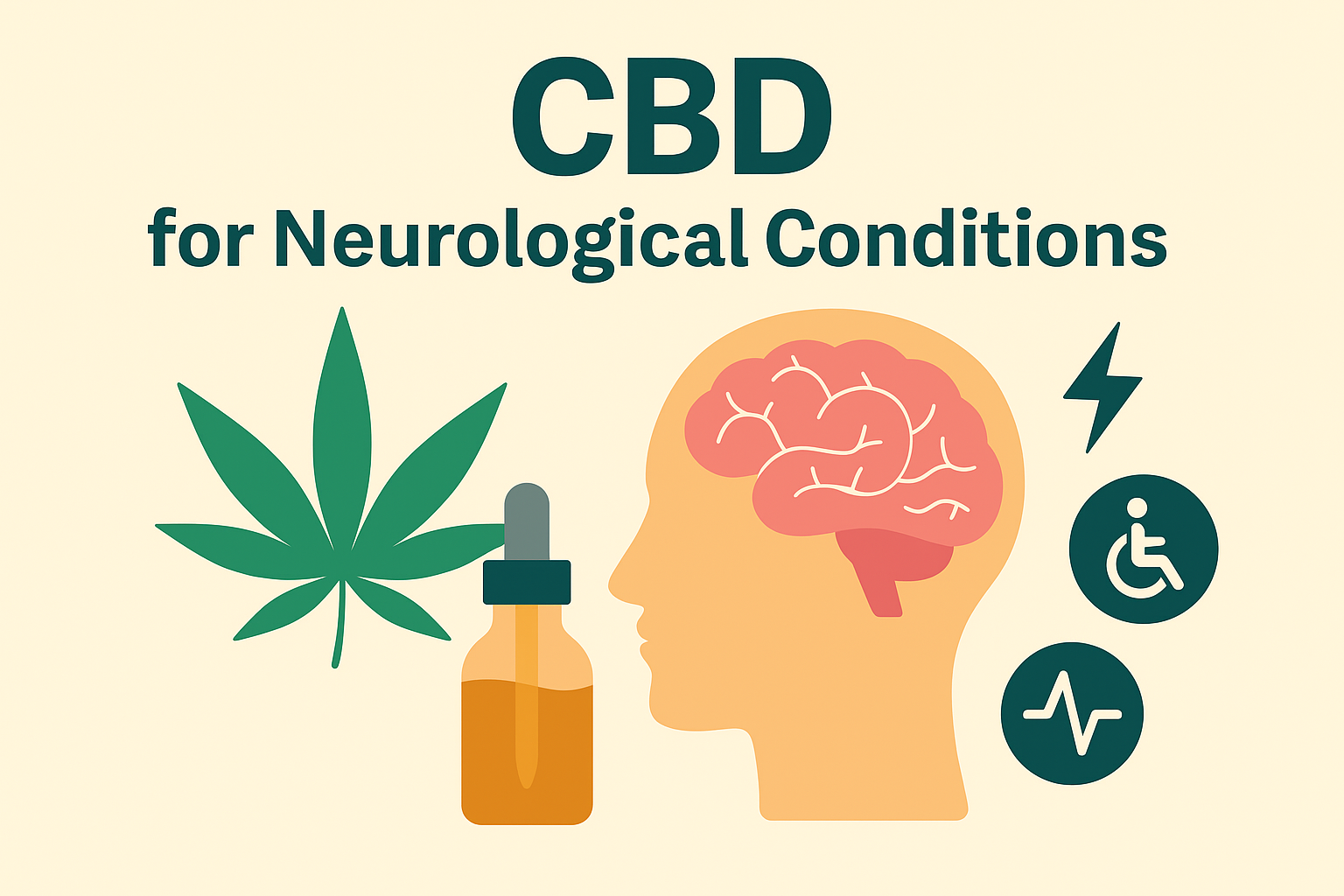
Cannabidiol (CBD), a nonpsychoactive compound derived from Cannabis sativa, is gaining attention for its potential in treating neurological conditions. These disorders often affect movement, cognition, and mood, with current treatments sometimes falling short or causing side effects. CBD interacts gently with the body’s <a “=”” curebydesign.in=”” href=”https://curebydesign.in/human-\<a href=” https:=”” human-endocannabinoid-system-cbd=””>endocannabinoid\-system-cbd/”>endocannabinoid system and other receptors to offer neuroprotective, anti-inflammatory, and anticonvulsant benefits. Clinical evidence shows promise in epilepsy management and symptom relief in multiple sclerosis and Parkinson’s disease. Though research is still evolving with mixed results in some areas like Alzheimer’s and Huntington’s diseases, CBD generally appears safe with mild side effects. More studies are needed to confirm its long-term benefits across various neurological issues.
Table of Contents
- What Is CBD and How It Affects the Nervous System
- Neurological Conditions Where CBD Shows Promise
- How CBD Works in the Brain and Nerves
- CBD and Epilepsy: Reducing Seizures in Hard-to-Treat Cases
- CBD’s Role in Managing Multiple Sclerosis Symptoms
- Effects of CBD on Parkinson’s Disease Symptoms
- Potential Benefits of CBD for Alzheimer’s Disease
- Exploring CBD Use in Huntington’s Disease
- CBD’s Impact on Anxiety and Stress Disorders
- How CBD May Help with Depression Symptoms
- CBD and Other Psychiatric and Neurological Disorders
- Summary of Clinical Studies on CBD and Brain Health
- Common Side Effects and Safety Concerns with CBD
- Challenges Facing CBD Research in Neurology
- What’s Next for CBD in Neurological Treatments
- Frequently Asked Questions
16.1. How does CBD interact with the brain to affect neurological conditions?
16.2. Can CBD help with diseases like multiple sclerosis or epilepsy?
16.3. What are the possible risks or side effects of using CBD for neurological issues?
16.4. How long does it take for CBD to show effects on neurological symptoms?
16.5. Is there a difference between CBD from hemp and other cannabis plants for neurological use?
What Is CBD and How It Affects the Nervous System
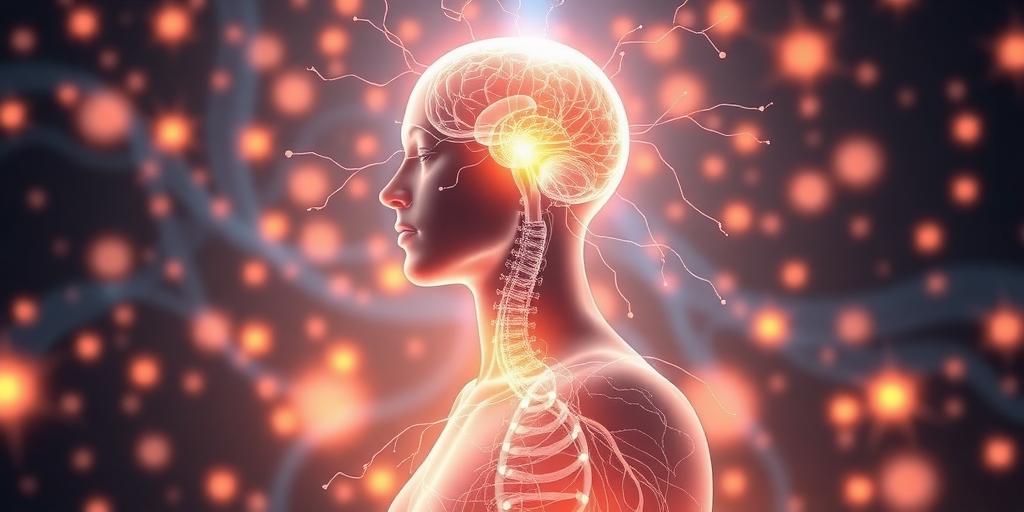
CBD, or cannabidiol, is a nonpsychoactive compound found in the Cannabis sativa plant. Unlike THC, it does not cause intoxication or a high. Instead, CBD works mainly by interacting with the body’s endocannabinoid system (ECS), which plays a crucial role in regulating many nervous system functions such as mood, pain, inflammation, and neural communication. Rather than directly binding to cannabinoid receptors CB1 and CB2, CBD modulates these receptors indirectly and inhibits the breakdown of anandamide, an endocannabinoid that promotes balance within the nervous system. This inhibition raises anandamide levels, enhancing its calming effects. Beyond the ECS, CBD also affects other important receptors like TRPV1, which influences pain and inflammation; 5-HT1A, a serotonin receptor involved in mood regulation; and GABA-A receptors, which help control neurotransmission and reduce neuronal excitability. By acting on these multiple targets, CBD reduces nerve cell overactivity and alters signaling pathways, which can result in anticonvulsant, anxiolytic, and analgesic effects. Additionally, its anti-inflammatory and antioxidant properties provide neuroprotection by reducing oxidative stress and inflammation in neural tissues. CBD’s influence on dopamine and adenosine receptors further supports its role in regulating mood, movement, and immune responses. Because it affects a broad range of molecular targets without causing significant psychoactive effects, CBD is considered a versatile agent for managing various neurological conditions.
Neurological Conditions Where CBD Shows Promise
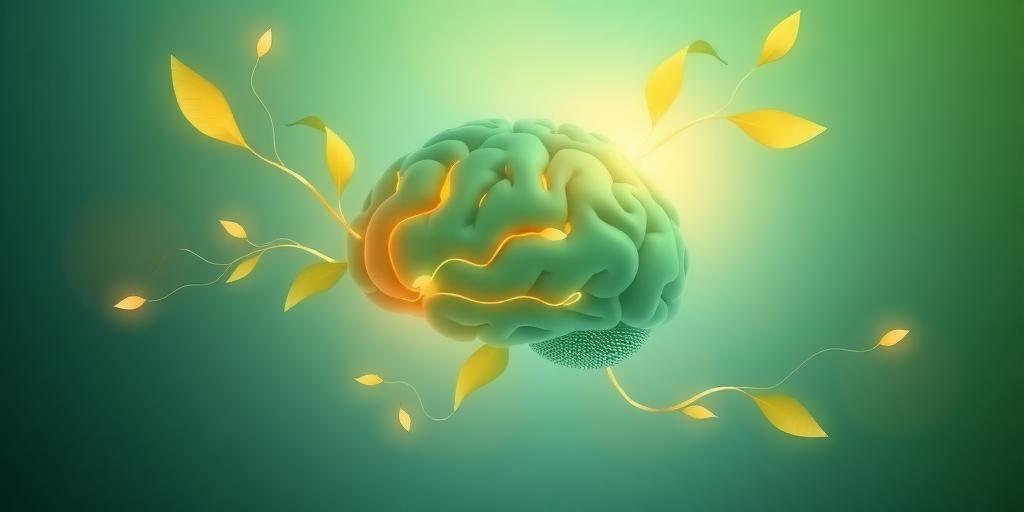
CBD has shown notable potential across a range of neurological conditions, especially where traditional treatments fall short. In epilepsy, particularly treatment-resistant types like Dravet syndrome and Lennox-Gastaut syndrome, CBD’s anticonvulsant properties have been validated by clinical trials leading to FDA approval of Epidiolex. These studies demonstrate significant seizure reduction and improved quality of life for patients. Multiple sclerosis patients also benefit from CBD’s ability to ease muscle spasticity and neuropathic pain, improving daily functioning through its anti-inflammatory and neuroprotective effects. For Parkinson’s disease, early research suggests CBD may help alleviate motor symptoms and offer neuroprotection, although results vary and more controlled studies are needed. In Alzheimer’s disease animal models, CBD reduces amyloid-beta toxicity and neuroinflammation, pointing to a possible role in slowing disease progression, though human trials remain absent. Huntington’s disease research is still limited, with initial studies hampered by dosing and bioavailability challenges, indicating a need for further investigation. Beyond these, CBD’s anxiolytic and antidepressant effects have been observed in both preclinical and some clinical settings, particularly benefiting those with anxiety, stress disorders, and depression often linked together. Neuropathic pain also responds to CBD through decreased pain sensitivity and inflammation. Psychiatric conditions like schizophrenia and PTSD have seen symptom relief when CBD is used alongside standard treatments. Additionally, CBD has shown promise in improving sleep disorders and reducing cravings in substance use disorders, broadening its neurological relevance. These diverse effects stem from CBD’s complex interaction with various brain receptors and its modulation of neuroinflammation and oxidative stress, highlighting its potential as a complementary therapy in neurological health.
| Neurological Condition | Evidence of CBD Effectiveness | Key Benefits | Notes |
|---|---|---|---|
| Epilepsy | Robust evidence, FDA-approved Epidiolex for some types | Seizure frequency reduction, improved quality of life | Effective in treatment-resistant forms like Dravet syndrome |
| Multiple Sclerosis (MS) | Studies report symptom relief and improved quality of life | Reduces muscle spasticity and neuropathic pain | Modulates neuroinflammation and oxidative stress |
| Parkinson’s Disease (PD) | Animal and human studies show potential benefits | Neuroprotection, improved motor function, reduced anxiety and psychosis | Mixed results in clinical trials; varied dosing |
| Alzheimer’s Disease (AD) | Preclinical animal studies | Reduces amyloid-beta toxicity and neuroinflammation, cognitive benefits | No large-scale human trials yet |
| Huntington’s Disease | Limited early clinical data | Potential neuroprotection but no significant symptom improvement at low doses | Needs optimized dosing and further research |
| Anxiety and Stress Disorders | Animal models and human trials | Reduces anxiety symptoms and physiological stress markers | Dose-dependent effect; effective doses 300-600 mg |
| Depression | Preclinical studies; some human cases | Antidepressant-like effects and mood improvement | Data limited; benefit mostly in comorbid anxiety |
| Neuropathic Pain | Preclinical evidence | Reduces pain sensitivity and inflammation | Supports symptom management |
| Psychiatric Conditions (Schizophrenia, PTSD) | Emerging clinical evidence | Symptom relief, especially psychosis and anxiety reduction | Often used adjunctively |
| Sleep and Substance Use Disorders | Some clinical improvements reported | Improves sleep quality and reduces cravings | Adds to neurological relevance |
How CBD Works in the Brain and Nerves
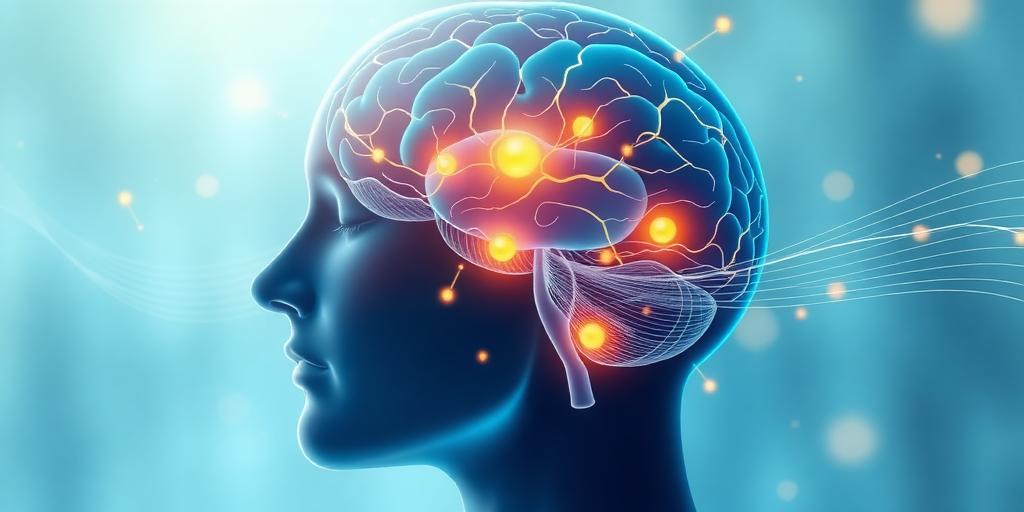
CBD interacts with the brain and nervous system in a unique way, not by strongly activating the main cannabinoid receptors CB1 and CB2, but by gently modulating them to help balance neural activity. One key action is its ability to increase levels of anandamide, an endocannabinoid, by blocking the FAAH enzyme responsible for breaking it down. This boost enhances the overall tone of the endocannabinoid system, which plays a critical role in maintaining brain and nerve health. Besides the cannabinoid receptors, CBD activates TRP channels such as TRPV1, which are involved in sensing pain and inflammation, helping to reduce these symptoms in neurological conditions. It also acts on serotonin 5-HT1A receptors, which contributes to easing anxiety and depression by improving mood regulation. Another important target is the GPR55 receptor, which CBD blocks; this receptor is linked to neuroinflammation and nerve excitability, so antagonizing it helps calm overactive neural circuits. CBD further supports inhibitory signaling by enhancing GABA-A receptor activity, promoting a calming effect on nerve cells. Its influence on dopamine D2 receptors may affect motor control and psychosis, which is relevant in diseases like Parkinson’s and schizophrenia. Additionally, CBD activates PPARγ receptors that help control inflammation and metabolic processes, supporting overall brain health. Through its action on adenosine receptors, CBD reduces neuroinflammation and encourages neuroprotection, which may protect neurons from damage. The combined effects on these diverse receptors enable CBD to reduce seizures, inflammation, oxidative stress, and anxiety, making it a multi-target agent with promising potential in various neurological disorders.
CBD and Epilepsy: Reducing Seizures in Hard-to-Treat Cases
Approximately 30% of epilepsy patients do not respond well to standard treatments, making alternative therapies essential. CBD has emerged as a promising option, especially with the FDA-approved drug Epidiolex, which is used to treat severe forms like Dravet syndrome and Lennox-Gastaut syndrome. Clinical trials have demonstrated that CBD can reduce seizure frequency by 37% to 68%, with doses typically ranging from 10 to 50 mg/kg per day. Often, CBD is used alongside other antiepileptic medications such as clobazam or valproate, requiring careful dose management to avoid interactions and side effects. Long-term studies reveal sustained seizure reductions between 45% and 84%, indicating lasting benefits for patients. Beyond seizure control, CBD helps improve quality of life by easing seizure severity and frequency. Patients with tuberous sclerosis complex, another difficult-to-treat condition, also experience significant seizure relief from CBD. The anticonvulsant effects of CBD are linked to its modulation of excitatory neurotransmission and reduction of neuroinflammation, which play key roles in seizure activity. While side effects are generally mild, monitoring liver enzymes is recommended due to potential elevations. Overall, CBD provides a valuable adjunctive therapy for patients facing hard-to-treat epilepsy, offering hope where conventional treatments fall short.
CBD’s Role in Managing Multiple Sclerosis Symptoms
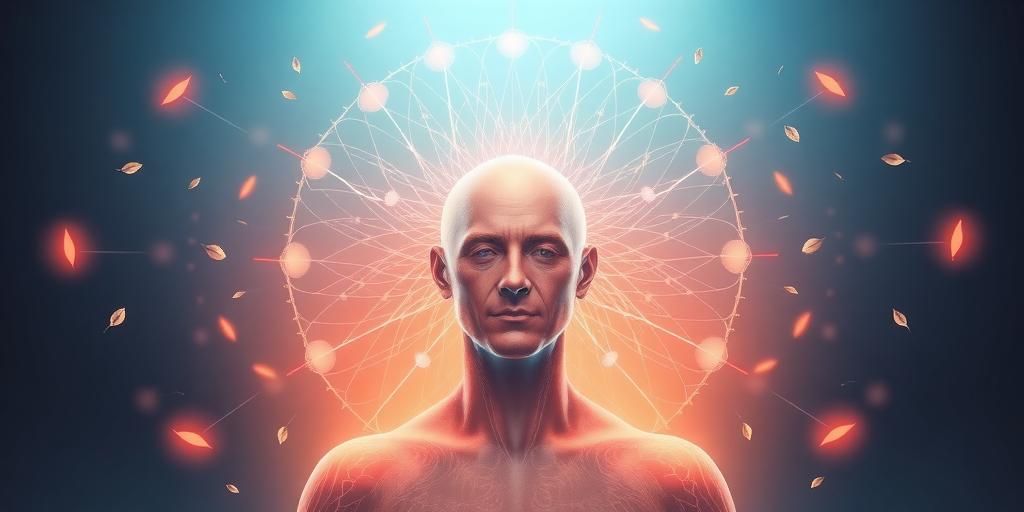
CBD has shown promise in easing several troubling symptoms of multiple sclerosis (MS), a disease marked by nerve damage and immune system attacks on the central nervous system. One of the most common and disabling symptoms in MS is muscle spasticity, and CBD helps reduce this stiffness, improving mobility and comfort. Beyond spasticity, CBD also alleviates neuropathic pain caused by nerve injury, which often resists conventional treatments. Studies involving CBD capsules or extracts report enhanced quality of life, including less fatigue and lower pain perception, supporting its role in symptom management. On a biological level, CBD modulates neuroinflammation, which not only contributes to symptom severity but also to the progression of MS itself. Its antioxidant properties further reduce oxidative stress, a key factor in nerve cell damage. Additionally, CBD may offer neuroprotection by shielding neurons from the immune system’s harmful attacks that characterize MS. While some research looks at products combining THC and CBD, evidence suggests that CBD alone delivers meaningful benefits without psychoactive effects. These effects are linked to CBD’s interaction with the endocannabinoid system, helping regulate immune responses involved in MS. Although encouraging, more large-scale clinical trials are necessary to determine the most effective dosing and to confirm long-term benefits of CBD in MS care.
Effects of CBD on Parkinson’s Disease Symptoms
CBD has attracted attention for its potential to ease symptoms of Parkinson’s disease (PD) through several mechanisms. In animal studies, CBD demonstrates neuroprotective effects by reducing oxidative stress and inflammation, which are key factors contributing to dopaminergic neuron damage in PD. This antioxidant action helps protect these neurons, possibly slowing disease progression. CBD may also influence dopamine levels, improving motor function that is typically impaired in PD. Some open-label human studies report that CBD use leads to reduced severity of symptoms such as tremors and rigidity, alongside improvements in sleep quality and daily living activities. Moreover, CBD’s interaction with dopamine receptors could affect both motor and nonmotor symptoms, including psychosis and anxiety, which are common in PD patients. However, results from double-blind clinical trials have been mixed, partly due to wide variability in dosing, from 20 mg to 300 mg per day, and lack of standardized treatment protocols. While early findings are promising, more placebo-controlled trials are essential to confirm CBD’s efficacy and safety in managing Parkinson’s disease symptoms.
Potential Benefits of CBD for Alzheimer’s Disease

CBD shows promise in addressing several key aspects of Alzheimer’s disease (AD). It helps reduce amyloid-beta toxicity, which is a major contributor to the development and progression of AD. In animal studies, CBD treatment has improved cognitive performance and memory, suggesting it may protect brain function. Its anti-inflammatory properties help lower brain inflammation, a factor linked to worsening AD symptoms. Additionally, CBD’s antioxidant effects protect neurons from oxidative damage, which is common in Alzheimer’s brains. By modulating the endocannabinoid system and other receptor pathways, CBD might slow neurodegeneration and improve synaptic function while reducing neurotoxicity in preclinical models. It may also assist in managing behavioral symptoms like agitation and anxiety often seen in AD patients. Although no large-scale human trials have confirmed these effects yet, CBD holds potential to complement current treatments by targeting multiple disease pathways. Future research should focus on optimal dosing, safety, and long-term cognitive outcomes to better understand CBD’s role in Alzheimer’s therapy.
Exploring CBD Use in Huntington’s Disease
Huntington’s disease (HD) is a complex neurological disorder marked by progressive motor, cognitive, and psychiatric symptoms. Early clinical trials using low oral doses of CBD (around 10 mg/kg) did not demonstrate significant improvements in these symptoms, likely due to CBD’s poor oral bioavailability which limits its therapeutic impact. Despite this, preclinical studies suggest that CBD’s neuroprotective and anti-inflammatory properties could help reduce neuronal damage and potentially improve motor function in HD. Researchers emphasize the importance of exploring optimized dosing strategies and alternative delivery methods to overcome bioavailability challenges. Combination therapies that include CBD are also being considered to address the range of HD symptoms more effectively. However, current clinical evidence remains insufficient to recommend CBD as a standard treatment for Huntington’s disease. More controlled clinical trials are necessary to assess both safety and efficacy, alongside a better understanding of CBD’s pharmacokinetics in HD patients to design effective treatment protocols.
CBD’s Impact on Anxiety and Stress Disorders
CBD has shown consistent anxiolytic effects in both animal models and human trials, making it a promising option for anxiety and stress-related conditions. Studies reveal that single doses between 300 and 600 mg can significantly reduce anxiety during public speaking challenges and social anxiety tests. For patients with treatment-resistant anxiety, longer-term use of CBD, typically 4 to 12 weeks, has been linked to lowered anxiety symptoms. Interestingly, CBD’s anxiolytic effects follow an inverted U-shaped dose-response curve, meaning moderate doses tend to be more effective than very low or very high doses. On the biological level, CBD interacts with serotonin 5-HT1A receptors, which play a key role in regulating mood and anxiety. It also modulates GABAergic and glutamatergic neurotransmission, further contributing to its calming effects. Beyond subjective anxiety relief, CBD reduces physical stress markers such as cortisol levels and blood pressure, which often elevate during anxiety episodes. Its benefits extend across various anxiety disorders, including generalized anxiety disorder, social anxiety disorder, and post-traumatic stress disorder (PTSD). Additionally, CBD may improve sleep quality, addressing a common problem for those suffering from anxiety and stress. Side effects are generally mild, with good tolerability reported among anxiety patients, supporting CBD’s potential as a safe adjunct or alternative to conventional anxiety treatments.
How CBD May Help with Depression Symptoms

Preclinical studies consistently show that repeated administration of CBD produces antidepressant-like effects, reducing depressive behaviors in animal models of chronic stress and inflammation. These models mimic key aspects of human depression, including cognitive impairments and lack of motivation, both of which CBD appears to improve. One important mechanism behind these effects is CBD’s interaction with serotonin 5-HT1A receptors, which are closely linked to mood regulation. By activating these receptors, CBD may help balance serotonin signaling, potentially lifting mood and easing depression symptoms. Additionally, CBD modulates neuroinflammation, a biological process increasingly recognized as a contributor to depression’s development. Its neuroprotective properties may also preserve brain areas affected by depression, supporting cognitive function over time. Although human research is still limited, early evidence suggests CBD could be especially helpful for people experiencing depression alongside anxiety. It may also ease withdrawal-related depressive symptoms in cannabis users reducing barriers to recovery. Importantly, CBD’s generally favorable safety profile encourages further study as a possible adjunct or alternative to traditional antidepressants. However, controlled clinical trials are necessary to determine effective dosing and to confirm its benefits for depression in diverse populations.
CBD and Other Psychiatric and Neurological Disorders
CBD has been the focus of research across a variety of psychiatric and neurological conditions beyond epilepsy and multiple sclerosis. In treatment-resistant epilepsy syndromes like Dravet and Lennox-Gastaut, CBD consistently reduces seizure frequency, offering hope where traditional drugs may fail. For multiple sclerosis, CBD helps ease muscle spasticity and neuropathic pain by calming inflammation and oxidative stress, improving patients’ daily comfort. Parkinson’s disease studies highlight CBD’s neuroprotective and antioxidant properties, with some human trials noting improvements in motor symptoms and sleep, though results are still mixed and more research is needed. In Alzheimer’s disease animal models, CBD appears to reduce harmful amyloid-beta buildup and neuroinflammation, suggesting it could slow disease progression, but human trials are lacking. Early Huntington’s disease trials showed limited benefit, likely due to low oral bioavailability, indicating a need for better dosing strategies. Beyond neurodegenerative diseases, CBD shows anxiolytic effects in social anxiety and other anxiety disorders, often demonstrating dose-dependent benefits with reduced physiological stress markers. While preclinical evidence points to antidepressant effects, human data remain sparse, though CBD may still help mood disorders, especially when anxiety is involved. In schizophrenia, CBD shows promise as an adjunct therapy, reducing psychotic symptoms without major side effects. For post-traumatic stress disorder (PTSD), CBD may ease anxiety and improve sleep, two core symptoms that often disrupt recovery. Additionally, CBD’s ability to reduce neuropathic pain and enhance sleep quality supports its broader use in managing neurological and psychiatric symptoms. These varied effects likely stem from CBD’s interactions with multiple receptor systems, including serotonin, GABA, and dopamine receptors, which together modulate inflammation, neurotransmission, and neuroprotection.
Summary of Clinical Studies on CBD and Brain Health
Clinical studies on CBD and neurological health reveal a varied but promising landscape. In epilepsy, randomized controlled trials confirm that CBD can reduce seizures by 37 to 68 percent in syndromes like Dravet and Lennox-Gastaut, with long-term studies showing sustained benefits when CBD is used alongside standard antiepileptic drugs. For Parkinson’s disease, open-label trials suggest improvements in motor symptoms and sleep quality, though placebo-controlled results are mixed, indicating the need for more rigorous research. Animal studies in Alzheimer’s disease demonstrate cognitive improvements and reduced brain inflammation, but human trials have yet to validate these findings. Anxiety disorder research shows that acute doses of CBD between 300 and 600 mg can lower anxiety in public speaking and social anxiety tests, while depression studies remain limited but hint at potential benefits, especially when anxiety symptoms coexist. Early trials in schizophrenia patients indicate that adjunctive CBD may reduce psychotic symptoms and enhance cognition. Smaller studies and case reports also note symptom relief in PTSD, fibromyalgia, and Tourette’s syndrome. Dosing in these studies varies widely, from 10 mg/kg/day in epilepsy to as low as 20 to 300 mg per day in Parkinson’s and anxiety trials. Across the board, CBD is generally well tolerated with mild side effects, supporting its safety profile in brain health research. Although these results are encouraging, further large-scale, placebo-controlled trials are needed to clarify CBD’s full therapeutic potential in neurological conditions.
Common Side Effects and Safety Concerns with CBD
CBD is generally well tolerated in patients with neurological and psychiatric conditions, but like any treatment, it comes with some side effects and safety considerations. The most commonly reported side effects include fatigue, diarrhea, mild gastrointestinal discomfort, and changes in appetite. These effects tend to be mild and usually improve with dose adjustment or discontinuation. Serious adverse events are rare but can involve elevated liver enzymes, especially when CBD is used alongside other medications. This risk highlights the importance of monitoring liver function during long-term or high-dose CBD therapy.
CBD is known to interact with cytochrome P450 enzymes, which play a key role in metabolizing many drugs, including antiepileptics and antidepressants. These interactions may alter the blood levels of coadministered medications, sometimes requiring dose adjustments to avoid toxicity or reduced effectiveness. Because of this, healthcare providers often recommend careful monitoring when CBD is added to existing treatment regimens.
Another safety concern stems from the variability in CBD product purity and formulation. Over-the-counter CBD products can differ widely in their content and quality, which may impact both safety and therapeutic effects. Pharmaceutical-grade CBD products with standardized dosing and purity profiles are preferred for clinical use to minimize these risks.
Unlike THC, CBD does not produce psychoactive effects, which reduces concerns about abuse or dependence. However, the lack of long-term safety data, especially in vulnerable populations like children and the elderly, means that ongoing research is needed. Overall, dose-dependent side effects of CBD are usually mild and reversible, but careful consideration of drug interactions and product quality is essential for safe use in neurological conditions.
- CBD is generally well tolerated across neurological and psychiatric patient populations.
- Common side effects include fatigue, diarrhea, mild gastrointestinal discomfort, and changes in appetite.
- Serious adverse events are rare but can involve elevated liver enzymes, especially when combined with other drugs.
- CBD interacts with cytochrome P450 enzymes, potentially affecting metabolism of antiepileptics, antidepressants, and other medications.
- Monitoring liver function is advised during long-term or high-dose CBD treatment.
- Variability in CBD product purity and formulation can affect safety and efficacy; pharmaceutical-grade products are preferred.
- Dose-dependent side effects appear mild and reversible upon discontinuation or dose adjustment.
- CBD does not produce psychoactive effects like THC, limiting abuse and dependence concerns.
- Drug interactions may necessitate dose adjustments of coadministered medications.
- More data are needed on long-term safety and effects in vulnerable populations such as children and elderly patients.
Challenges Facing CBD Research in Neurology
CBD research in neurology faces several significant challenges that slow progress and complicate clinical use. Legal and regulatory differences between countries restrict the scope and pace of studies, limiting access to standardized CBD products for research. The lack of consistent dosing protocols and varied formulations, ranging from oils to capsules and isolates, make it difficult to compare results across trials or translate findings to real-world treatment. Furthermore, the exact mechanisms of CBD’s action remain partly unclear, demanding more detailed molecular and pharmacokinetic investigations to understand how it interacts with neurological pathways.
Many neurological disorders lack large-scale, placebo-controlled clinical trials with rigorous design, creating gaps in high-quality evidence. Patient populations in studies often vary widely in terms of age, disease severity, and concurrent medications, adding complexity to interpreting outcomes and generalizing results. CBD’s poor and inconsistent oral bioavailability further complicates dosing strategies, as absorption can vary significantly between individuals, potentially affecting efficacy.
Drug interactions pose another challenge: CBD can influence the metabolism of common neurological medications via cytochrome P450 enzymes, raising concerns about safety and requiring careful guidance. Long-term safety data are especially limited for chronic neurological conditions, where patients might use CBD for extended periods. On top of this, the commercial market is flooded with products of varying quality and purity, which hinders reproducibility of research findings and clinical application. Finally, funding and pharmaceutical interest remain limited due to regulatory hurdles and the difficulty in patenting natural compounds like CBD, which reduces incentives for large-scale investment in thorough clinical trials.
What’s Next for CBD in Neurological Treatments
To fully harness CBD’s potential in neurological care, large randomized, placebo-controlled trials are essential to validate its effectiveness across a wider range of disorders. Developing standardized, pharmaceutical-grade formulations with improved bioavailability and clear dosing guidelines will help ensure consistent outcomes and patient safety. Understanding CBD’s precise molecular targets within the nervous system could refine its therapeutic use and help identify which patients are most likely to benefit. Combining CBD with existing neurological medications may offer synergistic effects while minimizing side effects, an approach worth exploring in future studies. Long-term safety data, especially in vulnerable groups like children and the elderly, remain limited and must be addressed to support widespread clinical use. Regulatory clarity across countries is critical to facilitate research, approval, and easier patient access to quality CBD products. Expanding research to include psychiatric conditions that often accompany neurological disorders will provide a more comprehensive view of CBD’s benefits. Using biomarkers and neuroimaging could allow personalized treatment plans by monitoring how CBD affects brain function in individual patients. Collaborative efforts among multiple research centers would help overcome challenges related to small, homogenous study populations. Finally, educating healthcare providers and patients about CBD’s potential benefits and risks is vital to promote informed, appropriate use in neurological practice.
Frequently Asked Questions
1. How does CBD interact with the brain to affect neurological conditions?
CBD interacts with the brain primarily by influencing the endocannabinoid system, which helps regulate things like pain, mood, and inflammation. This interaction can potentially help manage symptoms of neurological conditions by calming overactive nerve responses and reducing inflammation without causing a high.
2. Can CBD help with diseases like multiple sclerosis or epilepsy?
There is some evidence that CBD may help reduce symptoms and improve quality of life for conditions like multiple sclerosis and epilepsy. For example, certain CBD-based medications have been approved to reduce seizures. However, more research is needed to fully understand how CBD works for these diseases and to determine the best ways to use it.
3. What are the possible risks or side effects of using CBD for neurological issues?
CBD is generally considered safe, but it can cause side effects like fatigue, dry mouth, and changes in appetite or mood. It might also interact with other medications, especially those processed by the liver. It’s important to talk to a healthcare provider before starting CBD, particularly for neurological conditions.
4. How long does it take for CBD to show effects on neurological symptoms?
The time CBD takes to show effects can vary widely depending on the form used, dose, and individual factors. Some people might notice relief within hours when using oils or tinctures, while others taking capsules or edibles might need several days or weeks of consistent use. Patience and proper dosing are key.
5. Is there a difference between CBD from hemp and other cannabis plants for neurological use?
Yes, most CBD products for neurological conditions come from hemp, which has very low THC levels. Hemp-derived CBD tends to be preferred because it doesn’t cause psychoactive effects and is legal in many places. Cannabis plants with higher THC may have different effects and legal restrictions, so it’s important to know the source and composition of the CBD product.
